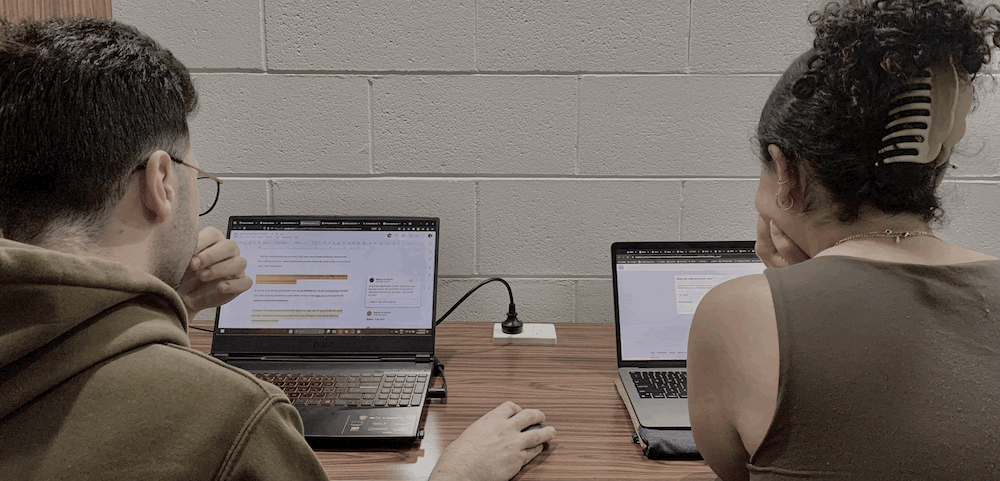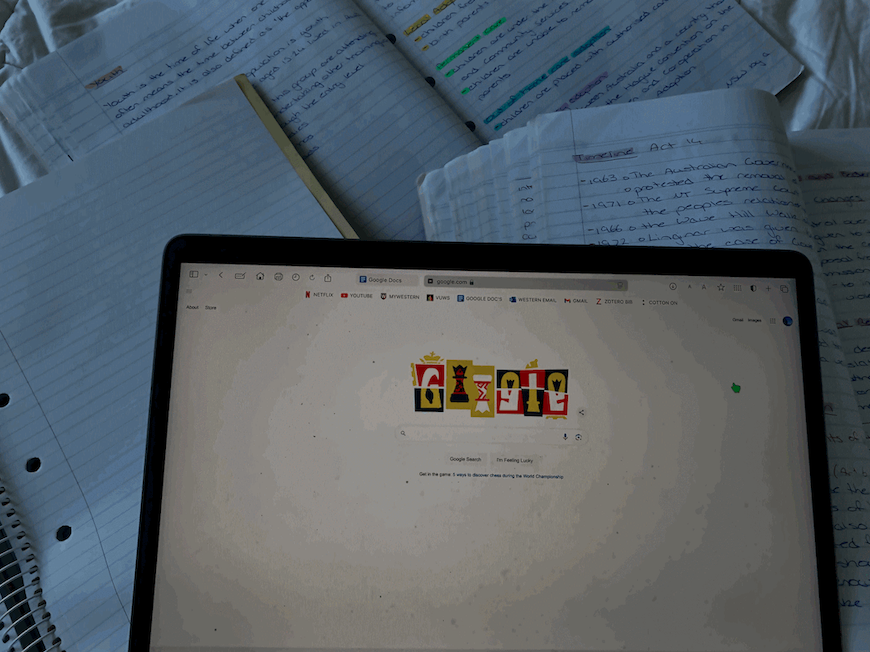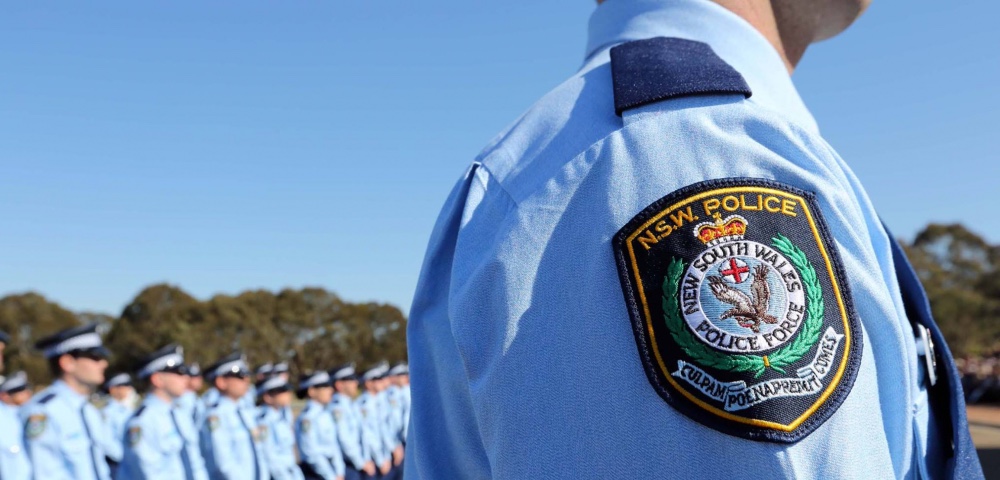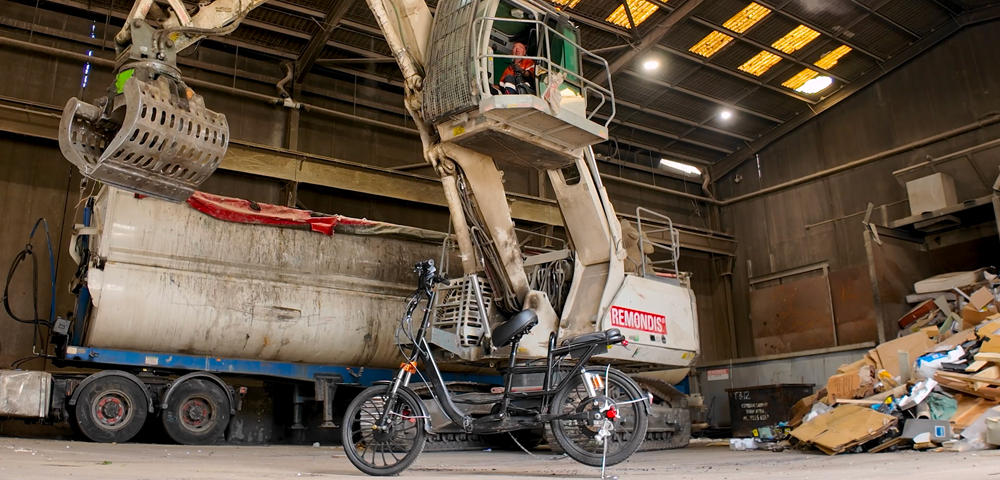
Here’s What Financial Stress Looks Like Right Now For Working Australian Uni Students

‘Here’s What The Financial Stress is Like For Working Australian Uni Students Right Now’ is a first-hand lived experience piece by Bianca Tropiano, about students’ real-life experience with finances and financial stresses during the current cost of living crisis. If this story has raised any concerns for you, you can find support services and resources at the bottom of this story.
— BIANCA TROPIANO
University students across Australia have been subject to distress due to their inability to withhold comfort in their financial situation and studies. With inflation on the uprise, University students have been forced to challenge their work to education ratio, restraining individuals from feeling secure about their financial situation and their ability to maintain their studies.
“Due to full-time university studies, I find myself worrying constantly about having enough money for groceries, and I have had to sacrifice a lot because I am not making a lot of money at the moment”, says Claire Brownlie.
Higher education has various factors which demand a lot of students, testing their ability to balance their personal life with their education. In 2023, the Australian Bureau of Statistics determined that 11.9 citizens in Australia aged 15-74 years older were fully engaged in study, work, or both. Those of which struggle to maintain motivation and attention to their studies due to financial stress, isolating students to either be poverty stricken or in financial debt.
The increased cost of living, unaffordable housing, course fees, and student HECS debts have induced university students into taking upon more employment opportunities in various forms. The pressure of being financially stable has never been as imperative as it is today. As money problems have situated students into a state where they are overworking themselves just to stay afloat in their personal life, and within their studies.
Cost of living crisis is causing financial stress and mental health concerns for students
Claire Brownlie, 22, a Western Sydney University Student who has been working and studying for 3 years claims that she has been heavily affected by the stress of studying full time and working casually.
“I have pretty bad anxiety when I am in semester, and full-time uni adds a lot more stress to my everyday life. Trying to meet deadlines at work and university has forced me to spend a lot less time doing things that help my mental health”.
In 2017, 38 percent of regional undergraduates had expenses exceeding their estimated income. The implications of students not earning enough money to financially support themselves during their studies is alluding to their ability to complete their degree and develop long term goals.


Education and Work in Australia, 2020 and 2023. Photographs by: Australian Bureau of Statistics.
A study conducted by the National Library of Medicine 2020, concluded that 53% of Australian higher education students suffer from psychological distress.
“The cost of living crisis has whacked uni students the worst. The idea that we should sacrifice our studies just to be able to afford food and rent makes me really upset”, says Brownlie. Regional University students who were working in 2017 were spending more than individuals who lived in major cities, due to the high living expenses and course fees.
Mr Nkosi Lessey is a curriculum convenor for the School of Medicine at Western Sydney University, and a credited researcher, writer and teacher at the University, believes that the shift in a student’s mental health can be very palpable and immediate. “These things are cumulative and they build up and it’s very stressful”.
Lessey has strong connections to student welfare, and the internal and external pressures that confine University students into mental health decline due to his experience working with behavioural science. The stress that higher education students experience due to working and studying “triggers them in a way that is very uncomfortable they need to recoup”, says Lessey.
“University is a bunch of glass walls, it looks pretty, but it’s not community”, says Lessey.
“Due to the fact that I have ADHD, I really struggle with staying on top of my heavy workload, resulting in periods of burn out and bad anxiety”, says Brownlie. The pressure of financial income among University students has shown to cause great distress among this demographic.
According to the Department of Education, 46.8 percent of students are experiencing extremely severe symptoms of anxiety due to their inability to be considered financially stable.

Heavy student work load. Photograph by: Bianca Tropiano
Students are making heavy sacrifices to alleviate financial stress
The average income for Australian University students is $23,300, in which the majority of University students work more than 20 hours a week. The average income of University students does not equate to the external pressures that students living out-of-home have to attribute for. Social factors like inflation are forcing students to weigh up whether they can continue studying and working.
“I often have to make sacrifices to my social life in order to prioritise buying food and paying bills, but I don’t have another option at the moment”, says Brownlie.
A Universities Australia Report conducted in 2013, found that students with financial stress were twice as likely to report mental illness compared to students with no financial stress. Lessey believes that students feel “ashamed, overwhelmed, they’re feeling guilty, incredibly despondent, lost, and frustrated” in their ability to be financially stable.
“It’s really hard for students to be motivated to study when they have to spend more and more time making money to eat food, and keep the lights on”.
Students’ ability to combat the workforce is primarily causing them distress, that “emolument, and the landscape involved is making students question, is this worth it”, says Lessey.
Alarna Bulmer, 20, a full time University student who studies a Bachelor of Psychology, works as a human resource officer. She is only able to casually work 3 days a week due to her full time studies. Students who work “struggle with time management and sleep deprivation”, says Bulmer.
The Australian Government concluded in 2020, that higher education students who study full time regularly miss classes due to their working schedule; 42 percent of these students reported that their occupation negatively impacts their studies.“You can’t switch off from uni or work once you get home. If i’m not thinking about work I’m thinking about Uni and vice versa”, says Bulmer.
The stress inside the classroom and out, extends further than expected. Students need better support in relation to the regulation of their mental health whilst completing studies, “When people have connections, networks, they manifest to do better, they persevere”, says Lessie.
“I have isolated myself a lot in the past year to simply have enough time to do work and study. This has definitely taken a toll on my mental health, and I know that this is very common amongst University students. We need help”, says Brownlie.
If this story has raised any concerns for you, you can find resources and support here:









